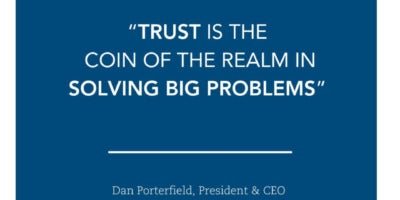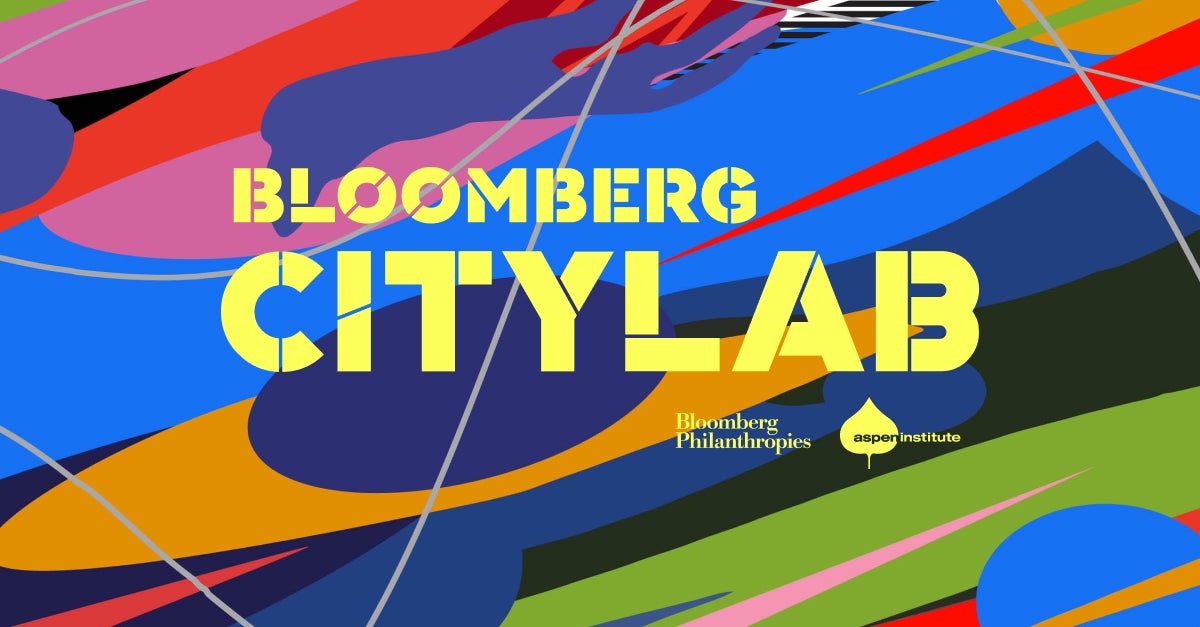Each year at Bloomberg CityLab, hundreds of mayors, city planners, urban innovators, and activists from across the world gather to discuss the most pressing challenges affecting cities. With more than half the world population living in urban environments, these leaders aren’t wasting time confronting issues of infrastructure, transportation, safety, housing, and other aspects of city life.
During this year’s event, each day’s plenaries were streamed live from Washington, DC—you can watch them on-demand here—as a variety of public figures and politicians engaged in thoughtful (and hopeful, and difficult) discussion.
The Aspen Institute’s President and CEO, Dan Porterfield, moderated a thought-provoking session on a subject that is affecting communities and shaping our ability to make progress in every arena: trust in our institutions and each other.

Porterfield spoke with Krystal Reyes, Chief Resilience Officer for the City of Tulsa, and Terrance Smith, Fellow of the Bloomberg Center for Public Innovation, who shared how they are improving trust through their work. In Tulsa, Reyes is conducting equity dialogues to bring people into conversation around the city’s deep and important history, where race, representation, and economic power converge.
“Lots of things haven’t been talked about for a long time. We’re trying to normalize conversations that might be difficult like racial equity and disparities. Our equity dialogues are part of that normalizing work.” – Krystal Reyes
In the equity dialogues, moderators facilitate small group conversations about how historical events affect the current climate. These government initiatives aim to create space for discussions to build community, better understand the experiences of others, and be better equipped to build trust. Tulsa is working to train people to have these types of conversations all across the city—creating a domino effect and fortifying the relationships needed to dream big and enact solutions that last.
“It’s an iterative process. It’s a choice every day and a resilience building activity.” – Krystal Reyes
Smith is conducting valuable research about building and measuring trust by studying cities around the world. To do this, he says, three important questions must be answered:
“Can you do what you say you’re going to do? Can you do that without harming me? And can you do it without me watching over your shoulder and without it harming me? If you can answer those questions, that’s how we build trust.” – Terrance Smith
What’s at stake if local governments aren’t able to earn and build trust? Reyes notes that disengagement in civic life often occurs when leaders get the ball rolling with ideas, successfully bring community members to the table to help, and then don’t have the resources to implement them. When this happens enough times, people begin to lose faith in their government’s ability to follow through and cease participating in voting and other community-strengthening activities.
“We won’t get great solutions…diverse thoughts and opinions, if we don’t have community stakeholders involved in our work who trust that the government can deliver on ideas.” – Krystal Reyes
As leaders work to reimagine systems and create policies that will carry their cities into the future, they must prioritize building and maintaining trust with the residents they serve.
“Trust is the lifeblood of all that we do. Without trust, we can’t get anything done.” – Terrance Smith

